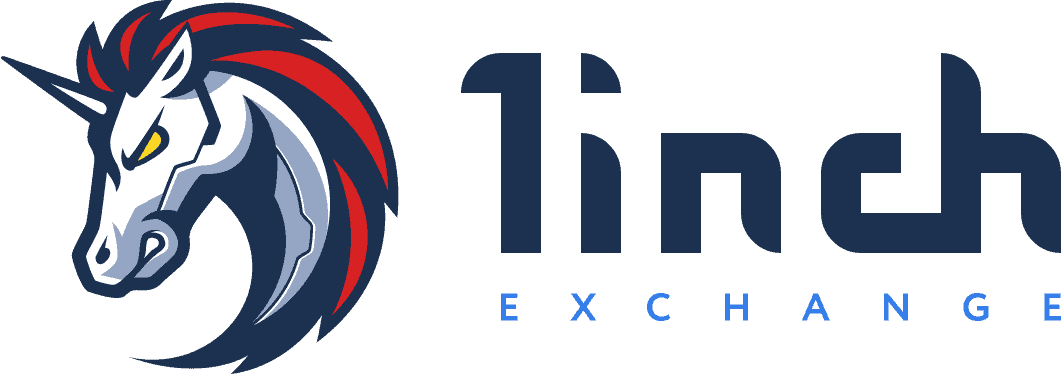Pros
Cons
Quick Summary
| Headquarters Location | Not Listed |
|---|---|
| Fiat Currencies Supported | USD, AUD, GBP, CAD, EUR, NZD + 10 others (some through third party apps) |
| Total Supported Cryptocurrencies | 13+ |
| Trading Fees | 0.15% - 1.15% |
| Deposit Methods | Cryptocurrency, SEPA, Faster Payments, Interac e-Transfer, Zelle, Revolut, WeChat Pay, Alipay |
| Support | Live Chat, Help Center Articles, Support Ticket |
| Mobile App | Yes - iOS, Android |
Bisq offers something distinctive in the cryptocurrency exchange market: as a peer-to-peer network, it enables users to buy and sell cryptocurrency directly among themselves.

Bisq upholds the fundamental ethos of decentralisation central to cryptocurrency philosophy without resorting to any centralised authority.
Bisq, as an innovative digital asset exchange, stands as an alternative to conventional centralized cryptocurrency exchanges. Its structure relies upon decentralization principles, so no single central authority monopolizes operations or holds any sway over Bitcoin or cryptocurrency trades.
Bisq’s innovative approach creates a more democratic network in which cryptocurrency peers play an essential role in maintaining and administering services. Direct payment options between parties allows Bisq to uphold autonomy and privacy values often sought-after in cryptocurrency space.
About Bisq
Bisq is an open-source desktop application designed to facilitate trading cryptocurrencies for national currencies without registration or central authorities being involved in exchanges. The project was intended as a secure, private and censorship-resistant means of exchanging cryptocurrencies.
Decentralisation ensures that the network remains resilient against attacks or fraudulent activity.

Bisq’s story is interwoven with that of the cryptocurrency revolution. Born from a desire to mirror the decentralized ideals embodied by Bitcoin and other cryptocurrencies, Bisq has emerged as an independent cryptocurrency trading platform.
Journey of Coinbase Exchange shows the changing face of digital finance, adapting to market and industry developments while remaining true to decentralization principles. Since launching, Coinbase Exchange has seen steady increases in active traders demonstrating an increasing need for platforms that enable individuals to manage cryptocurrency investments independently from financial institutions or centralized servers.
Bisq has a number of active social profiles including Facebook, Twitter, Instagram, LinkedIn, Reddit, Telegram and YouTube.
Bisq has a mobile app on both the Apple App Store and Google Play.
Bisq Supported Cryptocurrencies
Bisq supports trading on over 13 cryptocurrencies on their platform. This exchange currently supports 6 of the top 30 market cap cryptocurrencies.
View all cryptocurrencies Bisq supports
- BSQ
- CROAT
- DAI
- DOGE
- DOI
- ETH
- GRIN
- LTC
- SIL
- UNO
- USDC
- USDT
- XMR
Trading Experience
Bisq may present a steeper learning curve compared to centralized exchanges, but this tradeoff comes with enhanced security and privacy features that cater more experienced cryptocurrency traders looking for decentralised exchange experiences.
The Bisq DAO brings further enhancements to the platform by inviting users to participate in decision-making processes, ultimately strengthening the peer trading network over time.
Trading on Bisq requires navigating a complex interface designed for advanced cryptocurrency traders. While more intricate than that of centralized exchanges, Bisq’s trading interface rewards users with an array of tools and a flexible environment suitable for trading multiple cryptocurrencies simultaneously.
Peer trading networks offer an expansive variety of trade opportunities ranging from Bitcoin to Bitcoin Cash in an environment which prioritizes user control and privacy. Experienced users can leverage numerous payment methods, such as bank transfers, wire transfers, Faster Payments Chase QuickPay as well as Western Union and Advanced Cash to customize their trading experience to their individual needs.

Bisq Fees
Bisq’s fee structure has been designed to be fair and transparent, eschewing traditional exchange fees while reflecting operational costs in its trading fees.
Trade makers and takers are incentivised through a fee schedule designed to promote liquidity and fair trading practices.
Bisq’s trading fees structure is as distinctive as its trading model. A balance is struck between offering liquidity to a cryptocurrency pool and taking offers, and offering competitive pricing through trading fees that sustainably balance network sustainability with competitive pricing.
Fees play an essential role in discouraging bad actors and frivolous activity on Bisq’s network, ensuring only serious traders engage with its activities. While not explicitly mentioned, Maker and Taker fees align with operational expenses associated with running an uncentralized platform like Bisq – without maintaining central servers or physical presences to worry about.
| Type | Fee |
|---|---|
| Trading Fee | 0.15% - 1.15% |
Bisq supports a range of different cryptocurrencies with varying withdrawal fees. When looking at Bitcoin, their withdrawal fee is 0.0003 BTC. The average across all other exchanges that we've reviewed is 0.000484 BTC. This means Bisq charges below the industry average by 38.01%.
Security - Is Bisq Safe?
Security on Bisq is of utmost importance, with its decentralised platform offering no single point of failure or potential attack vector.
Users always retain control of their funds until authorised to authorise a trade, significantly reducing any instances of fraudulent activity.
Bisq’s decentralized platform is its strongest defense when it comes to security. Without a central server, the network is less vulnerable to hacking or fraudulent activity.
Every trade is protected with a security deposit to build trust between trading peers. New security features are constantly added – for instance the latest flaw in a patch which was quickly addressed by technical support staff.
Additionally, the built-in Bitcoin wallet adds another level of protection for user assets. Furthermore, Bisq DAO empowers its community members to approve security enhancements ensuring that the platform can stay abreast of changing cryptocurrency landscape.
Bisq Customer Support
Customer support on Bisq is community-driven, reflecting its decentralized ethos. Although there isn’t an independent customer service department or community forum available to users for assistance.
This approach ensures that users receive support from individuals knowledgeable and deeply invested in the Bisq network.
As part of its community-focused ethos, Bisq offers customer support that draws on the collective expertise of its user base. Users have access to an abundance of resources such as the Bisq Review platform, FAQ sections and user-guided forums – each offering something special that could unlock insights beyond mere textual data.
Decentralized support may prove challenging for those used to instant approval and one-on-one service, but its unique structure helps ensure resolutions reflect diverse experiences while being strengthened by community knowledge about Bisq network and cryptocurrency trading practices.

Bisq Support Channels
How to Sign Up on Bisq
- Create Account - Visit the Bisq website and fill out the create account form. You'll need to include a valid email, set your password and type in other details like your phone number and name.
- Verify Account - Confirm your email, you should get an email asking you to verify your account creation.
- Transferring Funds - Once your account has been verified, you'll be able to deposit using the deposit methods listed below, some of which are third party apps.
- Start Trading Crypto - That's it! You should now have everything in place to start trading.
Deposit Methods
Bisq Alternatives

1inch
Total Supported Cryptocurrencies
267+
Trading Fees
0%
Fiat Currencies Supported
USD, AUD, GBP, CAD, EUR + 10 others

OKX
Total Supported Cryptocurrencies
320+
Trading Fees
0.08% - 0.10%
Fiat Currencies Supported
USD, AUD, GBP, CAD, EUR, NZD + 85 others

Bancor Network
Total Supported Cryptocurrencies
239+
Trading Fees
0.1%
Fiat Currencies Supported
USD, AUD, GBP, CAD, EUR, NZD + 70 others
Final Thoughts
Bisq stands out for its focus on privacy and security in cryptocurrency trading, using a model which prevents central server vulnerabilities for increased peace of mind for traders.
Bisq stands out as an effective solution for cryptocurrency traders looking to trade independently. Thanks to its advanced features and decentralised structure, this app makes for an ideal option.
Bisq User Reviews
0.0 out of 5.0
0 reviews
No reviews yet for Bisq - be the first to review!
Methodology
At Crypto Head we use a rigorous research and rating process to assess each platform. Our star rating system is out of 5 stars and is designed to condense a large amount of information into an easy-to-understand format. You can read our full methodology and rating system for more details.



